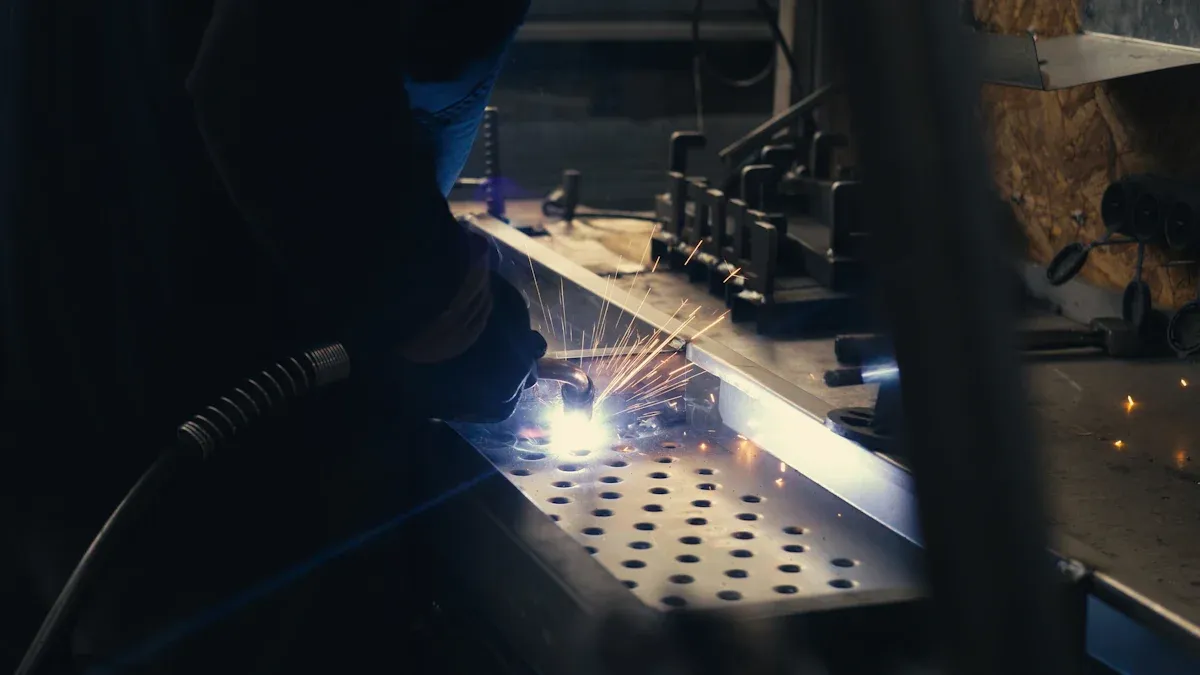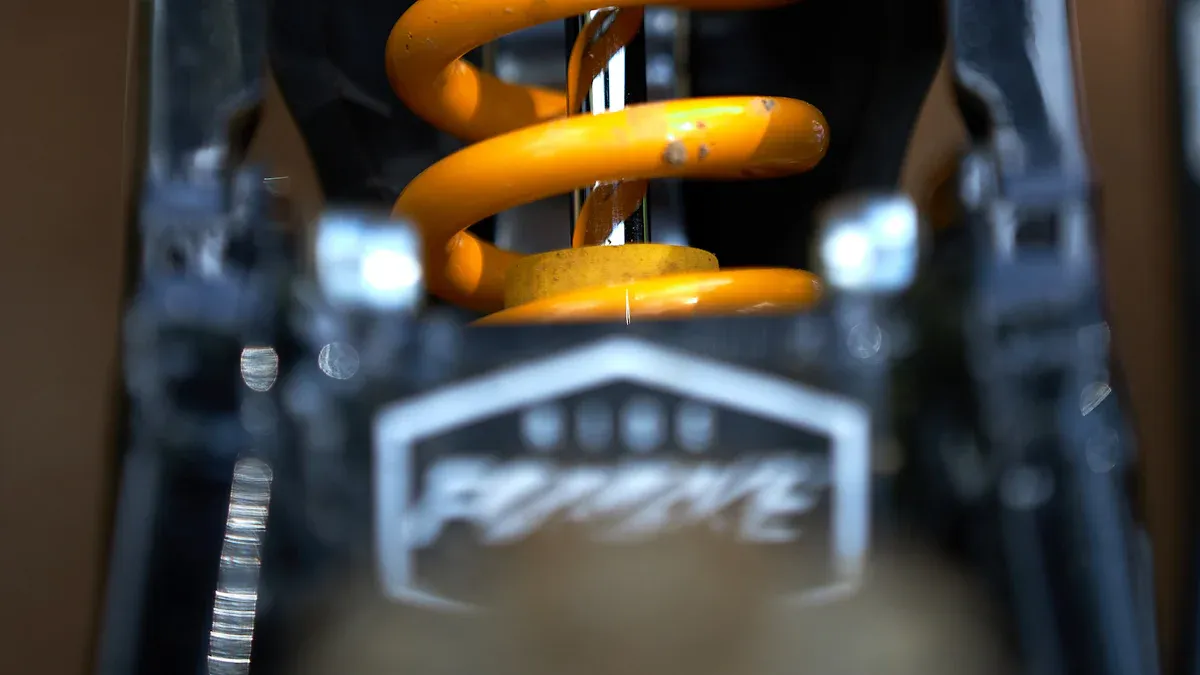
coilover
Enhance your driving experience
What are coilovers?
Coilovers are used to control the shock and rebound motion of the vehicle’s springs and suspension. They are important for keeping the tires in contact with the road surface for a smooth ride and to keep the vehicle stable. They soften the impact of bumps and uneven road surfaces for a more comfortable ride.
If you love cars or drive them regularly, MAX coilovers can make your ride even better and ensure that your car performs well in any situation.
your trusted partner in quality auto parts

Max is a manufacturer specializing in coilovers since and has been known for its innovative technology, superb craftsmanship and strict quality control standards since its inception. Our product line covers a wide range of coilover needs from daily commuting to professional racing levels.
What are coilovers?
coilovers control how quickly the suspension compresses and rebounds. When the vehicle hits a bump in the road, the suspension system compresses to absorb the impact. The coilovers soften this impact and control how much the suspension bounces back, making sure it doesn’t jolt too much. This helps the tyres grip the road, making the car safer to drive.
Coilovers work by using hydraulic drag. This is where a piston in an oil-filled cylinder creates resistance, which stops the suspension moving. The piston moves, forcing the oil through small holes. This creates different effects during compression and rebound, which means it can be used in different ways for different vehicles.
There are two types of coilovers: hydraulic and gas-filled. Hydraulic types use fluid to soften movement, while gas-filled types use pressurised gas to reduce foaming and improve performance for challenging uses such as off-road or racing.
Improved ride quality
Coilovers soften bumps in the road and reduce vibrations, making long journeys more comfortable and reducing driver fatigue.
Improved safety
worn coilovers reduce stability, increase stopping distances & accident risk. Good condition improves vehicle safety.
Enhanced vehicle control
Elementor is a WordPress page builder that lets you easily build beautiful.
Protecting Other Components
Coilovers absorb road impact, protecting suspension components, reducing maintenance costs, and extending the life of the vehicle’s suspension system.
What are coilovers?
There are two main types of shocks: monotube shocks and twin-tube shocks. Each type has its own unique design and features to meet different driving needs and preferences.
Monotube coilovers
- The monotube coilover consists of a cylinder that houses the piston and oil. This design dissipates heat more efficiently and is ideal for high performance applications.
- The monotube design allows for more efficient heat transfer, resulting in improved performance during aggressive driving.
- The monotube coilover is lighter and enhances vehicle dynamics with better handling and responsiveness, making it suitable for sports cars and high-performance automobiles.
- Due to their advanced design and materials, monotube coilovers tend to be more expensive than twin-tube coilovers. While some models offer adjustable settings, many monotube shocks are not as customizable as twin-tube shocks.
- If you're a passionate racer, monotube shocks may be the best choice for you. They offer excellent heat dissipation and responsiveness, making them ideal for high-performance applications.
Twin-tube coilovers
- A twin-tube coilover consists of an inner tube (in which the piston operates) and an outer tube (which holds the oil). This design is more traditional and is common in many vehicles.
- Dual-tube shocks are usually more affordable and are preferred for everyday vehicles. Many models come with adjustable settings that allow drivers to fine-tune the ride quality to their personal preference.
- The design is more robust and suitable for a wider range of driving conditions.
- Commuter daily drivers choose twin-tube coilovers to balance comfort, performance and price. Consider heavy-duty twin tubes for towing heavy loads, supporting more weight and better stability.
How to choose the right coilover for your car?
01.car Type
The first step in choosing the right coilovers is to consider your vehicle type. Different vehicles have different suspension systems.
Sedans and Coupes: These vehicles are usually equipped with coilover shocks and focus on comfort and smooth handling. You should choose a coilover that strikes a good balance between comfort and handling.
Off-Road Vehicles and Trucks: These vehicles usually require heavy-duty coilovers to handle the extra weight and off-road conditions. If you regularly travel over rough terrain, consider a coilover with greater durability and performance.
High-performance vehicles: If you own a high-performance vehicle, you may want to invest in adjustable shocks to fine-tune the suspension to your driving style and road conditions.
02. Driving style
Your driving style is another key factor in choosing the right coilover. Are you an aggressive driver who likes to take sharp turns and accelerate quickly, or do you like to drive easily and comfortably?
If you drive aggressively, choose a coilover with better handling and stability. Performance-oriented dampers can help reduce body roll and improve cornering ability.
For drivers who prefer comfort over performance, standard or comfort shocks may be the best choice. These dampers provide a smoother ride and effectively absorb the impact of bumps and uneven surfaces.
If you’re often off the beaten path, consider opting for heavy-duty or off-road shocks, which are designed to handle rough terrain. These shocks typically feature larger pistons and sturdy construction for off-road driving.
03. Budget
04. Compatibility with existing components
Regarding shock coilovers, people often ask
Coilovers can last between 50,000 and 100,000 miles on average. This depends on a number of things, like how they’re used, the type of car and how well they’re looked after.
Driving on rough ground, hitting potholes a lot, or carrying heavy loads can make a shock absorber last much shorter. The quality of the coilovers themselves matters too. High-end models may last longer than economy models. Regular checks and maintenance can help spot signs of wear and tear, so they can be replaced quickly and make sure they work as well as they should.
It fits perfectly! Shocks are designed to improve your driving experience, so they are perfect for everyday use. They help keep the tyres in contact with the road, improving traction and stability. This is especially important in cities, where the roads can be in very different conditions.
For everyday drivers, well-functioning coilovers make driving more comfortable and reduce the impact of bumps and dips in the road. Dampers also help make handling and control better, which is very important for safety.
Coilovers have a direct impact on how comfortable your car is to drive. Their main job is to control the movement of the vehicle’s suspension and make sure it responds well to different road surfaces. When coilovers are working properly, they help to make driving easier by reducing body roll when going round corners, and making the ride more stable.
But if your coilovers are worn or damaged, it can make the ride feel rough, cause your car to lean more and make it harder to control. This can make driving uncomfortable and potentially dangerous, especially in bad weather. If you want to make your car ride better, you should think about buying good coilovers.
Lowering springs are a common modification that car fans make to improve the look and handling of their vehicles. But they might affect the coilovers. If you lower the body, this changes how the suspension is set up. This means more stress on the coilovers.
While lowering the springs can improve how the car handles by reducing body roll and making it easier to go round corners, they can also make the ride more bumpy. This is because the way the shock absorber is designed might not be able to handle the changes to how the suspension moves when it is lowered. If you don’t upgrade the coilovers when you change to lowered springs, the car will wear out more quickly and drive less smoothly.
To reduce these problems, it is best to use lowering springs with high-performance coilovers designed for lowered vehicles. This combination helps to keep the ride quality good while making the handling better.



